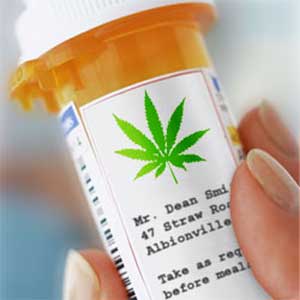 Regulating cannabis access would provide patients with an effective treatment for chronic pain and likely reduce morbidity associated with the use of prescription opiates and other pharmaceuticals, according to a review published in the Journal of Psychoactive Drugs.
Regulating cannabis access would provide patients with an effective treatment for chronic pain and likely reduce morbidity associated with the use of prescription opiates and other pharmaceuticals, according to a review published in the Journal of Psychoactive Drugs.
A researcher with the Centre for Addictions Research of British Columbia reports that cannabis may be useful in the treatment of chronic pain as well as certain substance abuse disorders, and that it poses fewer risks to health than many conventional alternatives.
He writes: “When used in conjunction with opiates, cannabinoids lead to a greater cumulative relief of pain, resulting in a reduction in the use of opiates (and associated side-effects) by patients in a clinical setting. Additionally, cannabinoids can prevent the development of tolerance to and withdrawal from opiates, and can even rekindle opiate analgesia after a prior dosage has become ineffective. Novel research suggests that cannabis may be useful in the treatment of problematic substance use. These findings suggest that increasing safe access to medical cannabis may reduce the personal and social harms associated with addiction, particularly in relation to the growing problematic use of pharmaceutical opiates.”
The author continues: “Since both the potential harms of pharmaceutical opiates and the relative safety of cannabis are well established, research on substitution effect suggests that cannabis may be effective in reducing the use and dependence of other substances of abuse such as illicit opiates, stimulants and alcohol. As such, there is reason to believe that a strategy aiming to maximize the therapeutic potential benefits of both cannabis and pharmaceutical cannabinoids by expanding their availability and use could potentially lead to a reduction in the prescription use of opiates, as well as other potentially dangerous pharmaceutical analgesics, licit and illicit substances, and thus a reduction in associated harms.”
The author concludes, “Despite a lack of regulatory oversight by federal governments in North America, community-based medical cannabis dispensaries have proven successful at supplying patients with a safe source of cannabis within an environment conducive to healing, and may be reducing the problematic use of pharmaceutical opiates and other potentially harmful substances in their communities.”
Between the years 1999 and 2007, over 65,000 people died from unintentional opioid analgesic overdose.
A previous review, appearing in the Harm Reduction Journal in January, similarly argued, “Prescribing cannabis in place of opioids for neuropathic pain may reduce the morbidity and mortality rates associated with prescription pain medications and may be an effective harm reduction strategy.”
In November, clinical investigators at the University of California, San Francisco reported that vaporized cannabis augments the analgesic effects of opiates in subjects prescribed morphine or oxycodone. Authors of the study surmised that cannabis-specific interventions “may allow for opioid treatment at lower doses with fewer [patient] side effects.”
For more information, please contact Paul Armentano, NORML Deputy Director, at: [email protected]. Full text of the study, “Cannabis as an Adjunct to or Substitute for Opiates in the Treatment of Chronic Pain,” appears in The Journal of Psychoactive Drugs.
Article From NORML and republished with permission
























